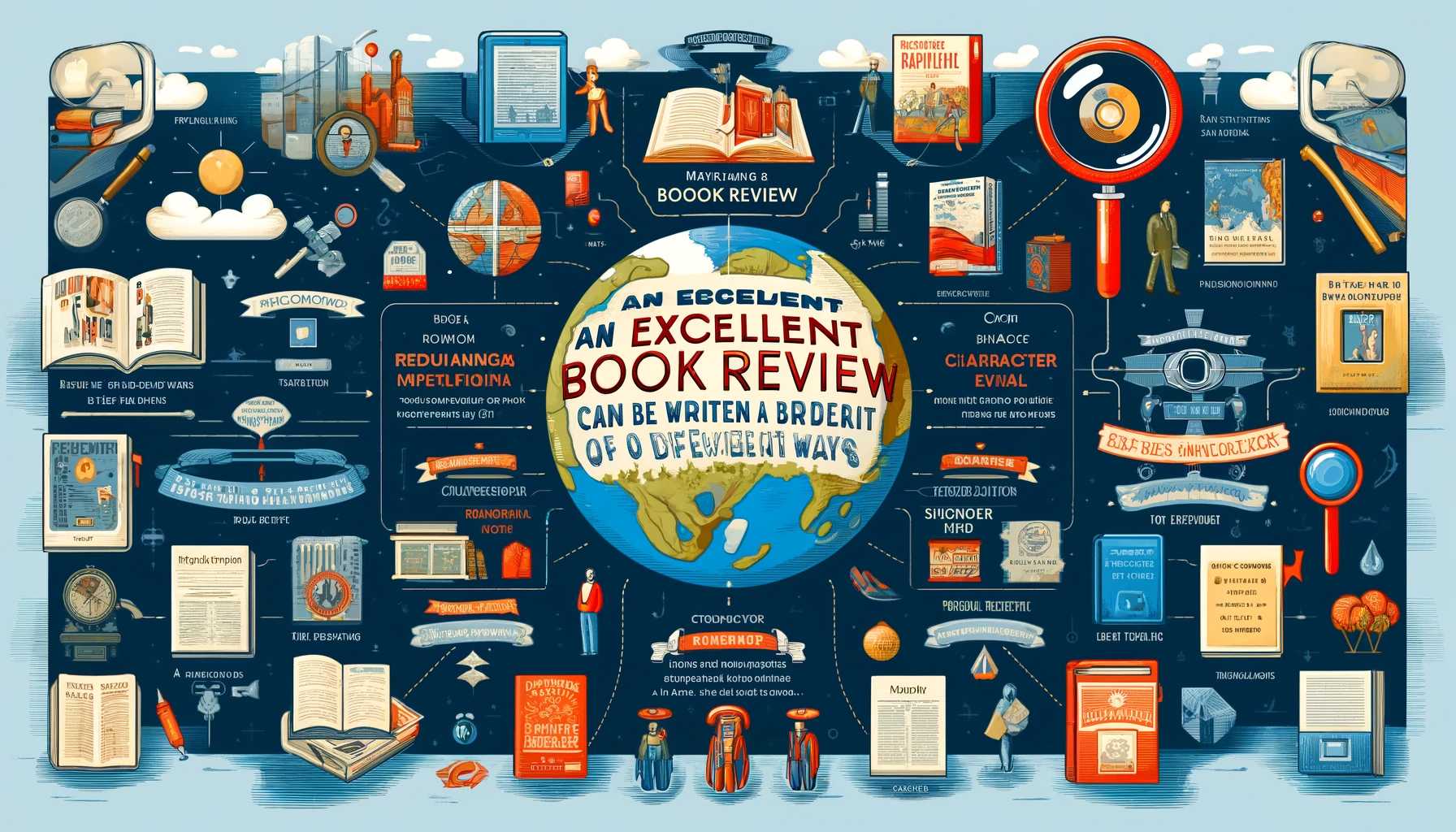AN EXCELLENT BOOK REVIEW CAN BE WRITTEN IN A LOT OF DIFFERENT WAYS.
But it all begins with reading carefully and intently.
Go over each page word by word, and reread any passages you don't understand. I read stuff in college that I didn't understand, but I kept going since that's what I always did in grade school, high school, and classes. You learn to follow along and make use of context cues.
Read anything again if something is unclear to you. Try outlining every scene in detail if you're still not sure what it means. A scene can consist of one paragraph, many paragraphs, or an entire chapter. I had to do this when I was in school, and I actually ended up loving it by the end, regardless of the hard to decipher Old English spellings.
You're not a horrible reader just because you read slowly.
Recognize this before you learn how to write excellent book reviews.
There are various reasons why people write book reviews. They occasionally wish to have their writing published in a magazine, newspaper, or Junky book review, for example. They occasionally have to write book reviews for class assignments. Sometimes they want to promote independent writers by leaving reviews on Amazon or they want to develop a presence on Goodreads.
My first suggestion, if you're writing a book review for school, is to combine the details of what your teacher is asking you to complete on their rubric with this blog post treasure trove. They might desire interpretive details that go beyond the 50% marker because they don’t care for spoilers, while reviewing for publication might want it to be spoiler-free.
What kind of reviews am I referring to? These would position you favorably for publishing your book reviews on websites, periodicals, and e-book retailers such as Amazon.
Your Foremost Important Question:
When reading, should you make notes?
Possibly? Likely? Ultimately, it's your call, but if you're just getting started, I would strongly advise it.
If you take notes while you read, you can not only identify specific passages in the book that express your feelings (for future writing), but you can also underline some of your favorite lines.
Your book review can gain length and intrigue by include quotes straight from the text. To hear that the book has great prose is one thing; it’s another to see it for yourself.
Meditate After Reading the Book.
Just give yourself some time to think about it; that's the major lesson here. After reading the conclusion, how does it feel to you? You know now what the author truly intended to accomplish?
Next, picture yourself discussing it with another reader in a hypothetical situation.
In what way would you initiate the discussion? How would you structure the narrative so that readers are aware of the characters, the main idea, and the direction the story takes?
The good news is that you're talking about it with your friend in depth (albeit that's also wonderful). With a review, as opposed to a chat, you will have the opportunity to edit and modify rather than just speaking without stopping.
It's still an excellent habit, though. Just by putting yourself in this friend's shoes, you can choose what matters most to discuss—wait, have I told them about the revolution yet? The romantic interest? Before I explain why it's so wonderful, they're going to need to know who the hell Luck is.
How to write an excellent book review in its first draft:
Call it what you will, but let the words flow. Write about the events in the book, your feelings toward them, and your reasoning. Simply write.
It might be considerably simpler to draft a building if you begin with its skeleton. We provide the following information to our reviewers for our 400+ word reviews:
• Write a brief, memorable tagline that briefly summarizes the main ideas of the book and one of its strong points: "An evocative psychological thriller that explores the influence of trauma on the human mind and soul." - Robyn-Lee Samuels, A Cabin in the Woods book review
"A sensitive, creative memoir that addresses the unanticipated death of a child" - Tucker Lieberman, A Complicated Sorrow, Book Review
"The hilarious antics of three unlikely pilgrims steal the show in this moving and funny novel," the author writes. — Frank Pizzoli, The Jesus Nut Book Review
- Give an early introduction to the book's characters and objectives.
- Write a captivating synopsis through around the halfway point.
- The author's/book's success story. Provide specifics and instances. Tell me about the characters and what makes them wonderful, if you said it had great characters.
- If any, what aspects of the book did you find objectionable? If not relevant, use this paragraph to highlight another strong point made by the writer or book.
- Closing thoughts, recommendation, and overall feeling about the novel.
Editing a book review on your own
You're not quite done. You've undoubtedly already written a fantastic book review, and I'm sure that everyone else agrees with you. But, wait, no.
Naturally, I haven't read it, but I'm rather certain that your initial draft can be strengthened. Please read your review from top to bottom while posing the following questions to yourself:
- Did I write the descriptions of the plot's events in the present tense?
- Did I use quote marks around the stories and essays in the book but not around the book title?
- Does this sentence effectively convey my meaning in the fewest possible words? Could any filler words be eliminated without affecting the sentence's clarity?
- Do I talk honestly and creatively about this book without resorting to clichés?
- Do I continue to present the story linearly until roughly the halfway point?
- Have I unintentionally given away any spoilers?
- Do the terms I use to compliment the book actually convey anything? Steer clear of meaningless expressions like "interesting" and "relatable."
- Do I have a nice balance between overview, compliments, and criticism (if any)?
- Would it strengthen my argument or persuade readers to buy the book if I included a quote from it?
- Do I provide proof for my claims about how amazing this character is? Proof that the pace was effective?
- How did my last line go? Does it sound as clear and catchy as it could? Am I presenting some of my best work to the reader?
Conclusion
Writing reviews is an art. While understanding the fundamentals of a strong book review is crucial, occasionally authors need to push the boundaries to achieve truly remarkable work, much like with great art.






